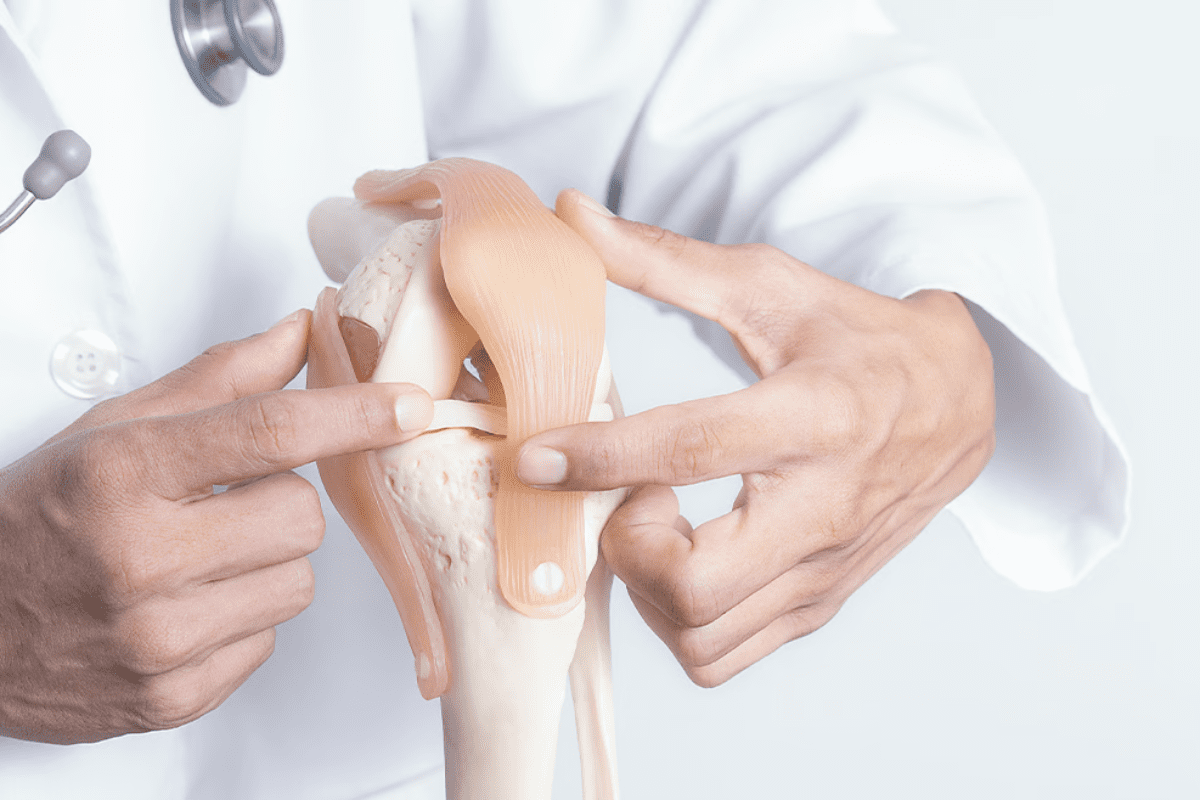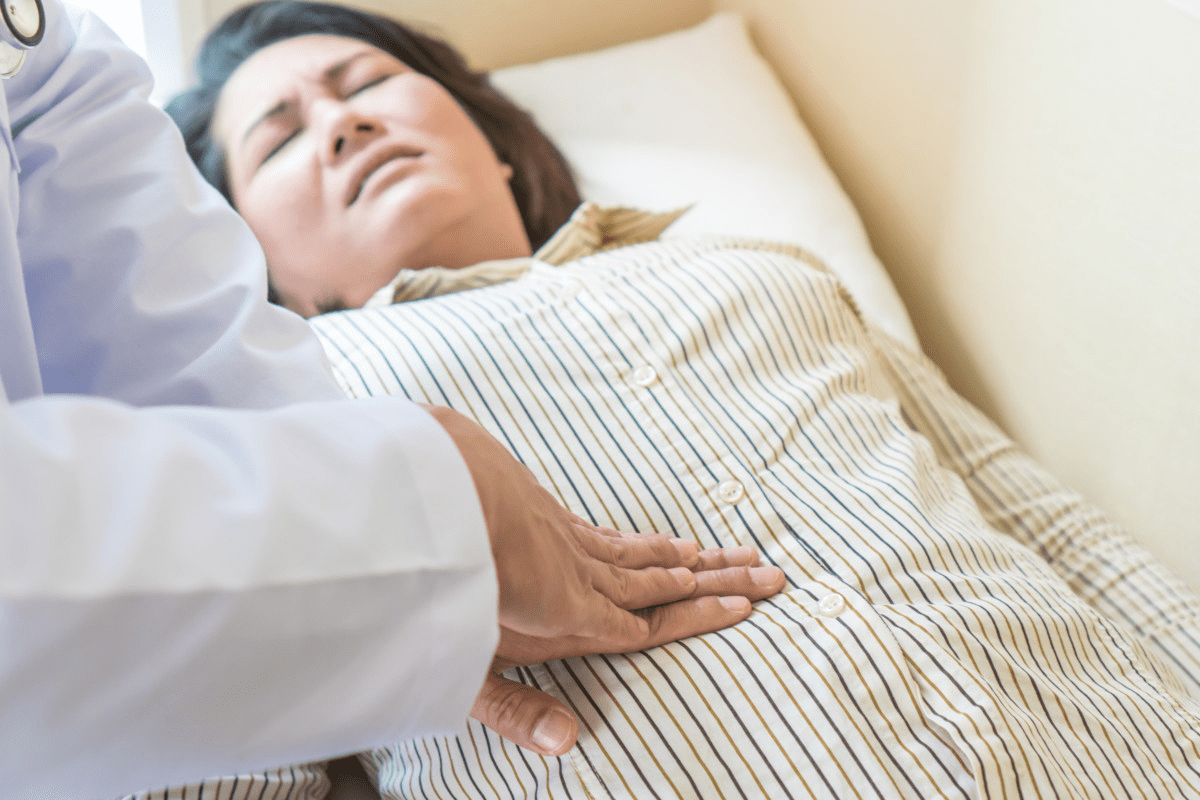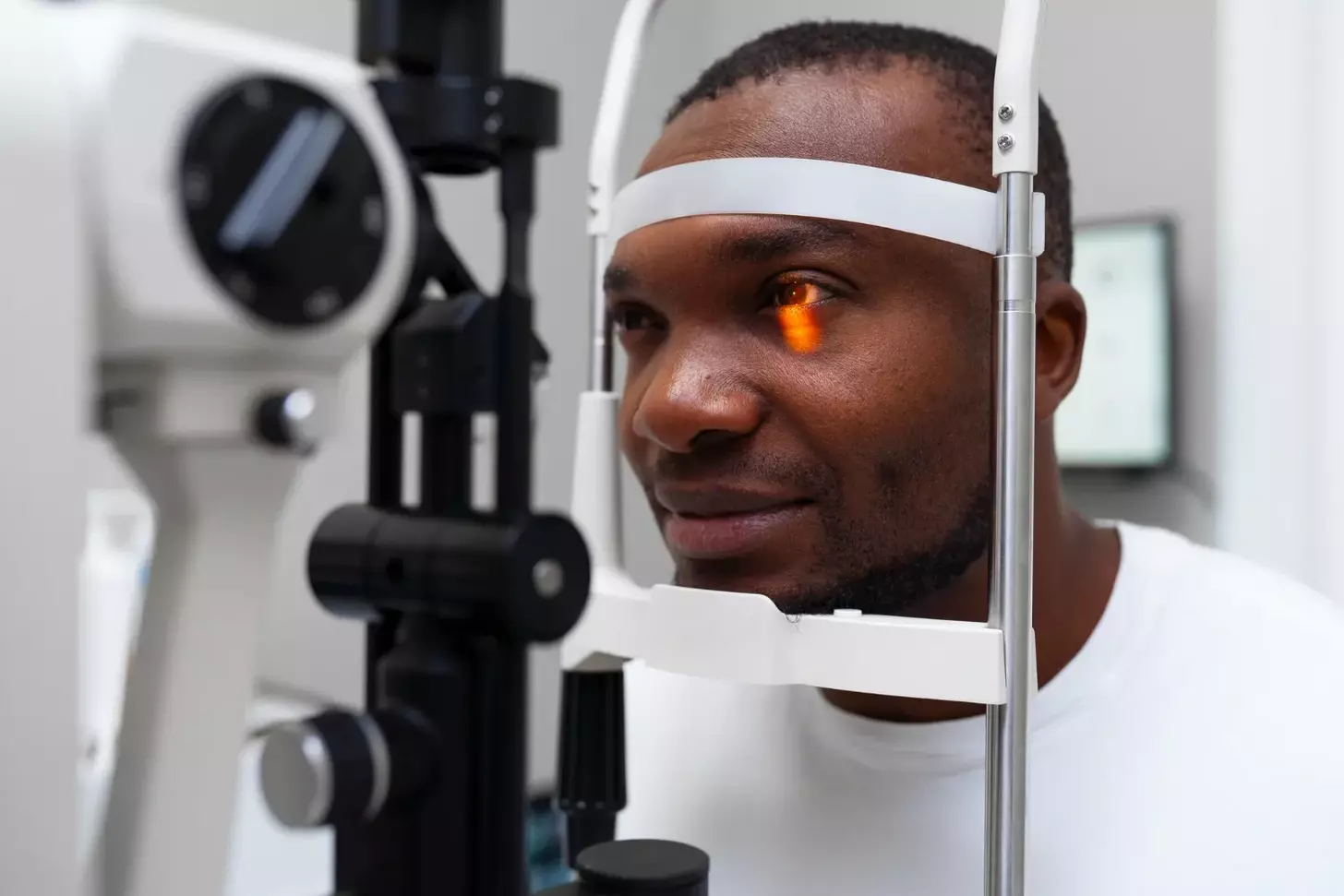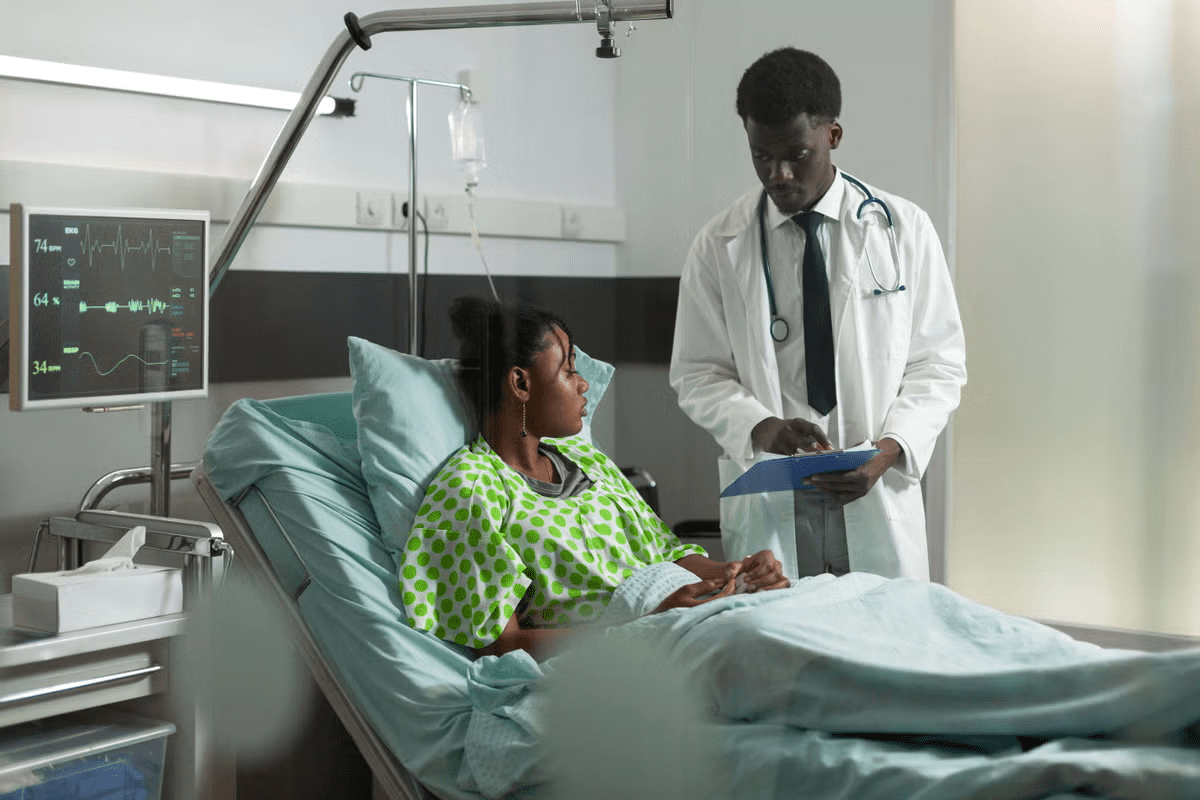Last Updated on November 27, 2025 by Bilal Hasdemir

Nearly 1 in 5 medical imaging procedures have wrong results because of bad preparation. This can lead to wrong diagnoses or more tests. Many patients also wonder about simple habits before scans — for example, can you drink coffee before a CT scan or other imaging tests?
When getting ready for a PET or CT scan, it’s important to stay away from caffeine and other substances. They can mess up the scan’s accuracy and affect the results.
Knowing the proper CT and PET scan preparation rules is key. It ensures your scan gives accurate and trustworthy results while avoiding the need for repeat testing.
Key Takeaways
- Following PET scan preparation guidelines is key for right results.
- It’s important to avoid caffeine before a PET scan.
- Good preparation stops wrong diagnoses and extra tests.
- PET scan accuracy is critical for good treatment plans.
- Preparation rules change based on the scan type.
Understanding Medical Imaging: CT Scans vs. PET Scans
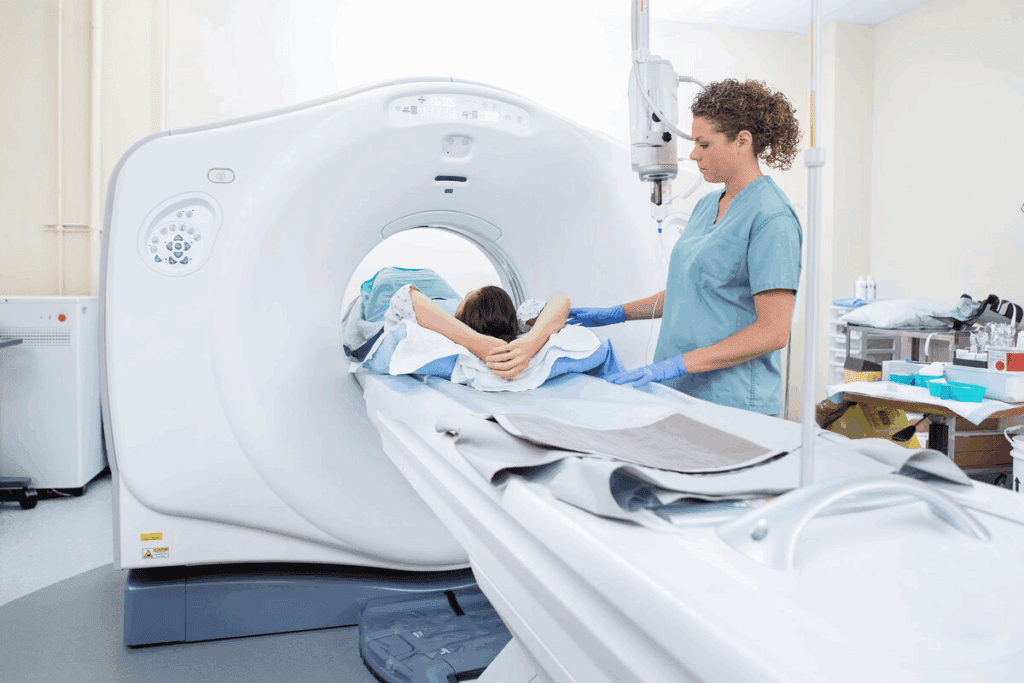
CT scans and PET scans are two different ways to look inside the body. They help doctors find and treat diseases. Each scan gives unique information about what’s happening inside us.
What is a CT Scan?
A CT scan is a safe test that uses X-rays to show the body’s inside. It’s great for seeing injuries, finding cancers, and helping with biopsies.
Key Features of CT Scans:
- Uses X-rays to create images
- Provides detailed cross-sectional images
- Quick procedure, usually taking a few minutes
What is a PET Scan?
A PET scan uses a special dye to see how active the body’s cells are. It helps find and track diseases like cancer and heart problems.
Key Features of PET Scans:
- Uses a radioactive tracer to create images
- Provides information on metabolic activity
- Helps in diagnosing and monitoring various diseases
Combined PET/CT Imaging
PET/CT imaging combines the strengths of both PET and CT scans. It shows where the body’s cells are active and what they look like. This helps doctors get a clearer picture of what’s going on inside.
The table below shows the main differences between CT scans, PET scans, and PET/CT imaging:
| Imaging Modality | Primary Use | Key Features |
| CT Scan | Anatomical imaging, detecting injuries and cancers | Uses X-rays, detailed cross-sectional images |
| PET Scan | Metabolic activity, diagnosing and monitoring diseases | Uses radioactive tracer, provides metabolic information |
| PET/CT Imaging | Combining anatomical and metabolic information | Integrates PET and CT scan data, enhances diagnostic accuracy |
The Importance of Proper Preparation for Medical Imaging

Getting ready for medical imaging is key. Techniques like PET and CT scans give doctors important info. But, how well you prepare affects their results.
Why Preparation Matters for Accurate Results
Good prep means better images. Some foods or substances can mess with the scan. Proper prep ensures clear images for doctors to make accurate diagnoses.
Guidelines help avoid problems. They might include not eating certain foods or skipping some meds. Each scan has its own rules.
General Pre-Scan Guidelines
Most scans follow similar rules. Patients often need to:
- Fast before the scan
- Avoid caffeinated drinks and specific foods
- Take off metal items and jewelry
- Tell their doctor about meds and health issues
Following these steps is critical. Not doing so can cause delays, extra costs, and wrong diagnoses.
Consequences of Improper Preparation
Bad prep can lead to:
| Consequence | Description |
| Inaccurate Results | Poor prep can cause unclear or wrong images, leading to bad diagnoses. |
| Need for Rescheduling | If you don’t follow prep rules, you might have to reschedule, delaying care. |
| Additional Costs | Rescheduling or redoing scans because of bad prep can cost more for everyone. |
It’s important to follow prep guidelines. This helps doctors get accurate results and plan the right treatment.
Can You Drink Coffee Before a CT Scan?
Many patients wonder if they can have coffee before a CT scan. The answer varies based on the scan type and the doctor’s advice.
General CT Scan Preparation Guidelines
Before a CT scan, you’ll get specific instructions. These might include fasting, avoiding certain meds, and removing metal items. Following these steps is key to getting clear scan images.
Here are some general tips:
- Arrive 30 minutes early for your scan.
- Wear loose, comfy clothes.
- Take off metal items like jewelry and glasses.
Coffee and Contrast Dye Considerations
Drinking coffee before a CT scan might be a worry, mainly if contrast dye is used. Contrast dye helps show body areas during the scan. Coffee might mess with the dye or scan process. But, its impact depends on the scan type.
“Caffeine can change how contrast material moves, which might impact image quality.”
When Coffee Might Be Restricted Before CT Scans
Coffee might be off-limits in certain situations:
| Situation | Reason for Restriction |
| Use of contrast dye | Coffee might affect how the contrast dye is absorbed or distributed. |
| CT scans of the abdomen or pelvis | Caffeine can cause changes in bowel movements or digestive system activity. |
| Certain medical conditions | Patients with specific conditions, such as kidney disease, might need to limit fluid intake. |
Always follow the doctor’s or imaging center’s coffee guidelines before a CT scan. If unsure, it’s best to ask for clear instructions.
Why No Caffeine Before PET Scan: The Scientific Explanation
Doctors tell patients to avoid caffeine before a PET scan because of its impact on glucose metabolism. This can lead to false readings. PET scans are key in medical imaging, showing how tissues and organs work.
How PET Scans Work With Radioactive Tracers
PET scans use radioactive tracers to find active areas in the body. The most common tracer is FDG (Fluorodeoxyglucose), a glucose molecule with a radioactive tag. Cancer cells and active tissues use more glucose, so FDG highlights them during the scan.
Caffeine’s Effect on Glucose Metabolism
Caffeine changes how cells use glucose. It can make cells use glucose differently, affecting the FDG tracer. Studies show caffeine can increase glucose release from energy stores and change insulin sensitivity, leading to uneven tracer uptake.
Potential for False Readings and Misdiagnosis
Drinking caffeine before a PET scan can cause wrong tracer distribution, leading to false results. Caffeine’s impact on glucose metabolism might make some areas seem more or less active than they are. This could lead to wrong diagnoses or the need for more scans.
| Substance | Effect on Glucose Metabolism | Potential Impact on PET Scan |
| Caffeine | Alters glucose utilization and insulin sensitivity | May cause false readings due to altered tracer distribution |
| Nicotine | Affects glucose release and insulin resistance | Could potentially alter scan results |
| Certain Medications | Varies depending on the medication | May require special consideration before PET scan |
As highlighted by
“The impact of caffeine on glucose metabolism is significant, and its avoidance before PET scans is critical for accurate results.”
Nuclear Medicine Specialist
It’s important for patients to know about these factors before a PET scan. Avoiding caffeine and other substances that affect glucose metabolism helps ensure accurate scan results.
The Impact of Caffeine on Medical Imaging Results
Caffeine’s effect on medical imaging is complex. It’s a stimulant found in many drinks. It can change the results of tests like PET scans.
Physiological Effects of Caffeine
Caffeine changes how our bodies work. It can make our heart beat faster and our blood pressure go up. Caffeine’s effects can change how imaging agents move in our bodies.
For PET scans, caffeine can mess with glucose levels. “Caffeine can change how glucose is taken up by tissues, which might lead to wrong readings if not considered.”
How These Effects Can Interfere With Imaging
Caffeine’s changes can mess with imaging results. In PET scans, it can change where the tracer goes. This might make the scan hard to read.
A study in the Journal of Nuclear Medicine showed caffeine can cause false negatives. It can change how certain tissues take up the tracer.
Research Studies on Caffeine and Imaging Accuracy
Many studies have looked at caffeine’s impact on imaging. A study in the American Journal of Roentgenology found caffeine doesn’t greatly affect CT scans. But it might change how some images are seen.
“The consumption of caffeine before medical imaging procedures should be carefully managed to ensure the most accurate results possible.”
Radiologist
It’s key for both doctors and patients to know about caffeine’s effects. By managing caffeine before tests, we can get better results.
Different Types of PET Scans and Their Specific Requirements
Each medical condition needs a different PET scan type. Each scan has its own prep needs. It’s key for patients to know these to get ready right.
Cardiac PET Scans and Caffeine Restrictions
Cardiac PET scans check the heart’s health, like coronary artery disease. A big prep rule is no caffeine. Caffeine can mess with heart activity, changing scan results. So, patients should skip caffeine for 24 hours before.
Here’s what to avoid:
- Coffee and tea
- Chocolate
- Some medications
- Caffeine-containing energy drinks
Oncology PET Scans
Oncology PET scans find and track cancer. They check cancer spread, treatment success, and if cancer comes back. For these scans, fasting for 4-6 hours is common. This helps get accurate glucose metabolism readings.
Important steps for oncology PET scans include:
- Fasting for the recommended time
- Avoiding hard exercise
- Telling the doctor about meds or diabetes
Neurological PET Scans
Neurological PET scans look at brain function and find disorders like Alzheimer’s and Parkinson’s. Prep might mean skipping some meds and eating certain foods.
It’s critical to listen to your doctor’s exact instructions. Prep needs can change based on the scan type and your health.
In summary, knowing about PET scan types and their prep needs is key for good results. By following prep steps, patients help their doctors get accurate info.
Coffee Before CT Scan: Contrast vs. Non-Contrast Studies
The type of CT scan you’re getting—contrast or non-contrast—matters for coffee before it. Knowing the difference is key for getting ready right.
Understanding Contrast Agents in CT Imaging
Contrast agents, or “dye,” make parts of the body show up better on a CT scan. They can go down through the mouth, veins, or rectum. Their job is to show the differences in body tissues, helping doctors find problems.
Key characteristics of contrast agents include:
- They contain iodine or barium, which absorb x-rays.
- They help see blood vessels, tumors, and other issues.
- They need careful preparation to avoid side effects.
When Coffee Consumption Matters Most
Coffee might be a worry before some CT scans, like those with contrast agents. Caffeine could mess with the dye or how the body works, affecting the scan’s results.
Guidelines for Different Types of CT Procedures
Rules for coffee before a CT scan change based on the type of scan.
| Type of CT Scan | Coffee Consumption Guidelines |
| Non-Contrast CT Scan | Usually, you can have coffee before a non-contrast scan. But, always check with your doctor first. |
| Contrast CT Scan | For contrast scans, it’s best to skip coffee and caffeine drinks for a while before. The exact time depends on your doctor. |
Always listen to your healthcare provider or the imaging center about coffee before your CT scan. The right prep helps get the best results from your test.
What to Expect During Your PET or CT Scan Procedure
Knowing what to expect during a PET or CT scan can make you feel less anxious. It helps you get ready for the imaging process.
The CT Scan Experience
A CT scan is a non-invasive test that uses X-rays and computer technology. You’ll lie on a table that moves into a big, doughnut-shaped machine. The scanner moves around you, taking pictures from different angles.
Key aspects of the CT scan experience include:
- The need to remain very quiet and hold your breath for short times
- Possible use of contrast dye to make images clearer
- A quick procedure, usually taking just a few minutes
The PET Scan Experience
A PET scan uses a small amount of radioactive tracer to show how active your body’s tissues are. Before the scan, you’ll get an injection of the tracer. It will move through your body.
Key aspects of the PET scan experience include:
- A waiting period after the injection before the scan starts
- The need to stay calm and quiet during this time
- Lying on a table that slides into a scanner, which finds the tracer’s activity
Duration and Comfort Considerations
Both PET and CT scans are usually easy to handle. But, how long they last and how comfortable you feel can change. This depends on the specific test and your own situation.
| Procedure | Typical Duration | Comfort Considerations |
| CT Scan | 5-10 minutes | May require holding breath or remaining very quiet |
| PET Scan | 30-60 minutes (including waiting time) | May involve lying very quietly for a longer time |
It’s important to follow your doctor’s advice and ask any questions you have. This will help you feel as comfortable as possible during the scan.
Timing Matters: When to Stop Caffeine Consumption
Many patients wonder when to stop drinking caffeine before a PET or CT scan. Knowing when to stop is key because it affects how accurate the scan will be.
Recommended Caffeine-Free Periods Before PET Scans
For PET scans, it’s best to avoid caffeine for at least 24 hours beforehand. Caffeine can change how glucose is used in the body. This can mess up the radioactive tracer used in PET scans. Stopping caffeine 24 hours before helps the tracer work better, giving clearer results.
Doctors say caffeine can mess with glucose use, which is important for PET scans. So, it’s important to follow the 24-hour rule for clear results.
Recommended Caffeine-Free Periods Before CT Scans
For CT scans, caffeine rules can differ. For non-contrast CTs, caffeine is usually okay. But for contrast-enhanced CTs, some places might ask you to stop caffeine 12 to 24 hours before. It depends on the contrast agent and the place’s rules.
- For non-contrast CT scans, caffeine is usually not restricted.
- For contrast-enhanced CT scans, check with your healthcare provider for specific caffeine cessation guidelines.
Why Timing Varies by Procedure and Facility
The time to stop caffeine can change based on the procedure and the place’s rules. Different scans react differently to caffeine, and places have their own ways. Always listen to your healthcare provider or the imaging place for the best results.
“The key to successful imaging is preparation. Following the guidelines for caffeine consumption before your scan can make a significant difference in the quality of the results.”
In short, knowing when to stop caffeine before a PET or CT scan is key for good results. By following the rules and talking to healthcare pros, patients can get scans that help their care.
Hidden Sources of Caffeine to Be Aware Of
Caffeine is hidden in many products, making it key to know where it is before a PET or CT scan. Coffee and tea are obvious sources, but many other drinks, foods, and medicines also have caffeine.
Beyond Coffee: Other Caffeine-Containing Beverages
Many drinks have caffeine, not just coffee and tea. Energy drinks are known for their caffeine. Soft drinks like cola, root beer, and ginger ale also have it. Some sports and hydration drinks add caffeine for a mental boost.
Common Caffeine-Containing Beverages:
- Energy drinks
- Certain soft drinks (colas, root beer, ginger ale)
- Some sports and hydration drinks
- Iced tea and chai beverages
Foods With Caffeine Content
Caffeine is in foods too, not just drinks. Chocolate has caffeine, but less than coffee or energy drinks. Some ice creams, coffee-flavored desserts, and candies also have it.
| Food Item | Approximate Caffeine Content |
| Dark Chocolate (1 oz) | 20-30 mg |
| Coffee Ice Cream (1 cup) | 30-60 mg |
| Chai Tea Latte (1 cup) | 40-70 mg |
Medications and Supplements Containing Caffeine
Some medicines and supplements have caffeine. Cold medicines, pain relievers, and weight loss supplements are examples. Always check the labels or ask a doctor about caffeine in these products.
“Caffeine is often an ingredient in weight loss products and energy supplements, which can be problematic for PET scan preparation.”
To avoid problems with your PET or CT scan, know about caffeine in hidden sources. Adjust your caffeine intake as advised by your healthcare provider or the imaging center.
Other Dietary Restrictions Before Imaging Procedures
Before a PET or CT scan, patients must follow certain dietary rules. These rules change based on the scan type, the imaging facility’s needs, and the patient’s health.
Fasting Requirements for Different Scans
Fasting is often needed before some scans. For PET scans that check glucose levels, fasting for hours is key. This helps the tracer work right.
CT scans have different fasting needs. Some, like those with contrast, might ask you to not eat or drink for hours. But, this rule can change based on the facility’s rules.
Sugar and Carbohydrate Restrictions
For PET scans with a glucose tracer, controlling sugar is key. Avoiding sugary foods and drinks is important. This helps the tracer work well, which is vital for scans on glucose or diabetes.
Carbohydrate restrictions might also be needed for some scans. They affect blood sugar and the tracer’s spread. Always follow the diet advice from your doctor or the imaging center.
Water Consumption Guidelines
Drinking water is usually good, but rules can vary. For some scans, you can drink water until the scan. For others, you might need to drink less.
- For CT scans with contrast, drinking water helps the agent move through your body.
- For PET scans, water rules depend on the tracer and scan specifics.
It’s vital to follow the diet advice from your doctor or the imaging center. This ensures your scan results are accurate and safe for you.
Special Considerations for Patients With Medical Conditions
Getting ready for medical imaging is more than just following basic steps. It’s even more important for people with certain health issues. These conditions need special care to make sure the imaging is safe and works well.
Diabetes Management Before Imaging
For those with diabetes, controlling blood sugar before a PET or CT scan is key. It’s vital to follow your doctor’s advice on medication and fasting. Some scans, like those with contrast agents, might need changes to your diabetes plan.
Diabetic patients should also think about how their condition might affect scan results. High blood sugar can change how the tracer in PET scans works, leading to wrong results.
Considerations for Patients With Kidney Issues
People with kidney problems should be careful with scans that use contrast agents. Telling your doctor about kidney issues is very important to find the safest option.
In some cases, scans without contrast might be suggested. If contrast is needed, your doctor might adjust the dose or give you water to drink before and after. This helps protect your kidneys.
| Condition | Consideration | Action |
| Diabetes | Manage blood sugar levels | Follow healthcare provider’s instructions on medication and fasting |
| Kidney Issues | Avoid contrast-induced nephropathy | Inform healthcare provider; consider alternative imaging or dose adjustment |
| Allergies | Prevent allergic reactions to contrast agents | Disclose allergy history; consider premedication or alternative imaging |
Allergies and Contrast Material Concerns
People with allergies, including to contrast agents, should tell their doctor before the scan. Allergic reactions to contrast can be mild or severe. Knowing about allergies helps your team prepare.
If you’re allergic to contrast, your doctor might give you medicine before the scan. Or, they might choose a different contrast or imaging method.
What Happens If You Accidentally Consume Caffeine?
Accidentally drinking caffeine before a PET or CT scan can be scary. But knowing how it affects you is key. Caffeine is a stimulant that can change how your body works. This might impact the results of your medical scans.
Potential Impact on Your Scan Results
Caffeine can change how your body uses energy, which is important for PET scans. Drinking caffeine might make your scan results not accurate. This is because it can change how the radioactive tracer works in PET scans.
When to Notify Your Healthcare Provider
If you accidentally drank caffeine before your scan, tell your doctor right away. Telling them about the caffeine lets them check if it will affect your scan. They can then figure out what to do next.
| Action | Description | Timing |
| Notify Healthcare Provider | Inform about caffeine consumption | As soon as possible |
| Reschedule Scan | Potential rescheduling of the scan | Dependent on facility policies |
| Adjust Procedure | Possible adjustments to the imaging procedure | At the time of the scan |
Possible Rescheduling Scenarios
Your doctor might suggest rescheduling your scan if caffeine was consumed. They’ll look at several things. These include the scan type, how much caffeine you had, and when you drank it.
Knowing about caffeine’s effects before a PET or CT scan helps you prepare. Always listen to your doctor’s advice. This ensures the best results for your scans.
Conclusion: Ensuring the Best Possible Imaging Results
Getting ready for medical imaging is key to getting accurate results. Caffeine before scans, like PET scans, can mess up the results. Knowing the rules helps patients get ready right.
It’s important to avoid caffeine before PET scans because it affects how the body uses glucose. This can cause wrong readings and wrong diagnoses. The time to stop caffeine varies, so always listen to your doctor’s advice.
By following these tips and knowing where caffeine hides, patients help get the best scan results. This helps doctors make the right diagnosis and treatment plans. Working together, patients and doctors can get the best results.
FAQ
Can I drink coffee before a CT scan?
Drinking coffee before a CT scan is usually okay. But, always check with your doctor first. They might tell you not to drink coffee if you’re getting contrast dye.
Why can’t I have caffeine before a PET scan?
Caffeine can mess up PET scan results. It changes how your body uses glucose, which can lead to wrong readings or misdiagnosis.
How long should I avoid caffeine before a PET scan?
You should avoid caffeine for at least 24 hours before a PET scan. This helps ensure accurate results.
Are there any other dietary restrictions I should follow before a PET or CT scan?
Yes, there are other dietary rules you might need to follow. These include fasting, avoiding sugar and carbs, and drinking the right amount of water. It depends on the scan type and your needs.
What happens if I accidentally consume caffeine before a PET or CT scan?
If you accidentally have caffeine before a scan, tell your doctor right away. It could affect your scan results. You might need to reschedule.
Can I have coffee before a cardiac PET scan?
No, caffeine is usually not allowed before cardiac PET scans. It can change your heart rate and blood flow, which might mess up the scan.
Are there any hidden sources of caffeine I should be aware of?
Yes, caffeine is in more than just coffee. It’s also in some drinks, foods, meds, and supplements. Be careful about these when getting ready for a scan.
How do I prepare for a CT scan with contrast dye?
For a CT scan with contrast dye, follow your doctor’s instructions carefully. This includes avoiding coffee and other dietary rules.
What can I expect during my PET or CT scan procedure?
You’ll find the PET or CT scan procedure comfortable and quick. Your doctor will give you clear instructions to get the best results.
Can I drink water before a PET or CT scan?
It’s best to follow your doctor’s water guidelines before a scan. Too much or too little water can affect the scan’s accuracy.
Reference
- American College of Radiology. (2023). ACR–SPR practice parameter for performing FDG-PET/CT in oncology. Journal of the American College of Radiology, 20(3), 259–270. https://pubmed.ncbi.nlm.nih.gov/36822278/


